Rosehip decoction: benefits and contraindications
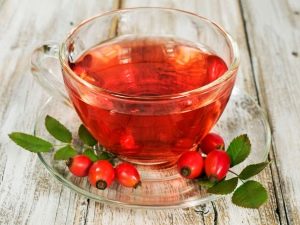
Wild rosehip, a representative of the Rosaceae family, is a storehouse of the most valuable nutrients that a person needs to maintain his health. As a medicinal raw material, this plant uses absolutely all its parts - roots and twigs, leaves, inflorescences and berries. The healing properties of wild rose are recognized not only by folk, but also by official modern medicine. There are many botanical varieties of this plant - they are counted more than 100 itemsthat grow throughout Russia.
To collect wild rose, or as it is also called - wild Rose, ripens in September-October, when harvesting berries, only ripe fruits are used, which, as a rule, are dried.
Rosehip roots are dug up in autumn, and young shoots and twigs are harvested in early spring.
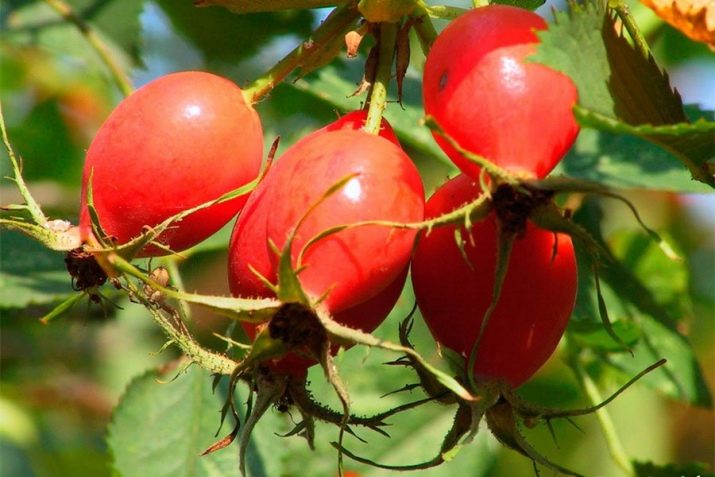
Properties
The most valuable property for the human body that rosehip possesses is that it contains a fairly large amount of vitamin C. In addition, the plant is rich polysaccharides, organic matter and little content vitamins of groups A, K, E, B and R. Malic and citric acids, pectin, lycopene, phytoncides, tannins, iron, calcium, magnesium and a host of other trace elements - all this gives us rose hips.Parts of the plant - berries, roots or twigs are used to prepare decoctions, infusions, alcohol tinctures, medicinal decoctions.
Rosehip-based drinks have a very low calorie content per 100 grams of the product - only 19 kcal, so you can use it without fear of gaining weight.
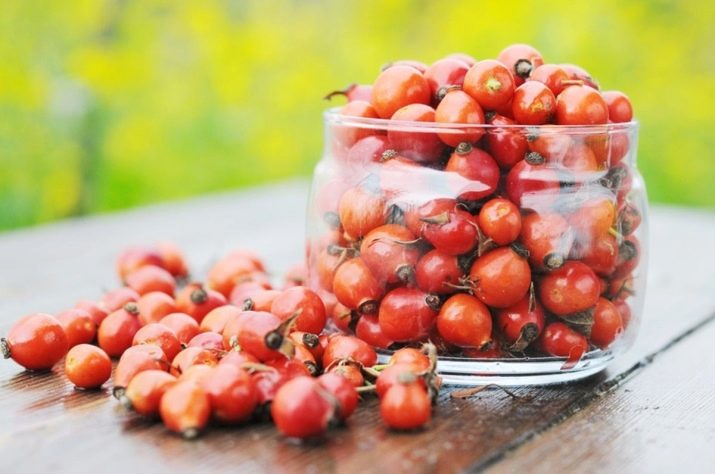
Despite the fact that the drink contains few calories, it is excellent. invigorates and tones, heals even a severely weakened body. The medicinal properties of wild roses are used to treat internal diseases, to restore strength after a long cold, to stimulate the body's immune defenses, and even for hair.
However, you need to take medicines based on wild roses with knowledge of the matter. So, for example, this plant can have an ambiguous effect on the work of the intestines - if you take preparations based on berries, then we can say that rosehip weakens. If you use the root of the plant for decoction, its active substances will slow down the production of bile, as a result of which such a drink, on the contrary, strengthens.
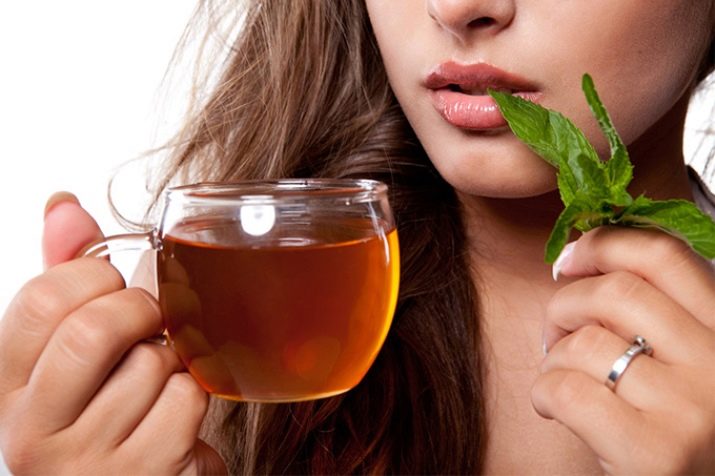
Benefit and harm
All parts of the plant have found their application for the restoration and prevention of human health. Indications for its use are available in the following cases:
- restoration of normal physiological functioning of the liver after removal of the gallbladder or with cholecystitis;
- stimulation of the enzymatic work of the gastrointestinal tract due to a decrease or stagnation of bile;
- beneficial effect on the strength and endurance of the heart muscle, normalization of blood pressure;
- stimulating the production of red blood cells, increasing the level of hemoglobin, dissolving atherosclerotic formations on the walls of blood vessels;
- reduces pain and reduces salt deposits in gout;
- normalizes the production of insulin by the pancreas in diabetes mellitus;
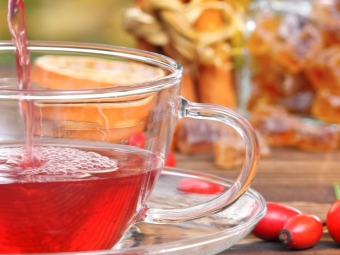

- is a means for the prevention of vitamin and mineral deficiencies, stimulates the immune system;
- reduces the risk of colds, reduces inflammation, has an antibacterial effect;
- activates the general tone of the body, mental and physical activity;
- lowers cholesterol levels, improves metabolic and metabolic processes of the body;
- promotes weight loss and cleansing of toxins;
- normalizes the functioning of the urinary and reproductive systems.

Brewed wild rose is universal in many pathological conditions of organs and systems. However, despite the whole range of positive properties and positive feedback from doctors and patients, this herbal raw material has its own side effects. Contraindications for its use are as follows:
- due to the large amount of vitamin C, it is contraindicated in gastric ulcers and gastritis with high acidity;
- with thrombophlebitis and an increased tendency to thrombosis, rose hips increase the risk of developing these conditions;
- endocarditis, pericarditis and other inflammatory diseases of the heart muscle require a careful approach to the appointment of such drugs;
- liver diseases can increase their course when taking shock doses of vitamin C, non-infectious jaundice can develop under its action;
- allergic and atopic reactions of the body can be triggered by taking rosehip-based drugs;
- with caution it is worth approaching the appointment of medicinal decoctions and tinctures with instability of blood pressure;
- those who have damaged enamel on their teeth are not recommended to take rosehip preparations, since the acid they contain contributes to an even greater destruction of the protective enamel, which will cause sharp pain.
In case of violation of the work of organs or systems in the body, a thorough examination and consultation with a doctor is necessary. The independent use of herbal remedies can bring not only benefits, but also cause undesirable consequences.
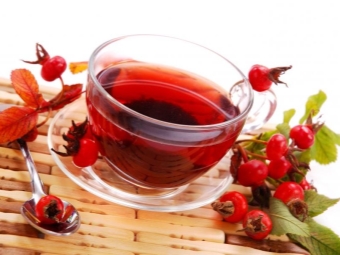

When breastfeeding
Women after childbirth, at a time when they have increased lactation, brewed rosehip tea or its infusion can be consumed without fear only if it is known for sure that they have no allergic intolerance to this component. If a newborn baby suffers from constipation, the use of rose hips by the mother will help to loosen the stool in the child. In addition, a rosehip decoction help a woman restore her body after pregnancy and childbirth - it quickly normalizes the balance of vitamins and microelements, raises the overall tone of the body, gives strength and vigor, strengthens the immune system.
It has been noticed that the use of decoctions and infusions of wild rose fruits enhances lactation, improves metabolic processes in the body and restores the hormonal background of a woman giving birth. The use of wild rose helps in the prevention of mastitis and inflammatory processes in the female body.

Recipes:
- Vitamin compote - mash 10-15 dried fruits, add a handful of dried fruits and pour 1500 ml of water, put the container on fire and add three tablespoons of honey to the existing ingredients. From the moment of boiling, remove the container from the fire and let the broth brew;
- Syrup - from 15-20 berries, filled with 500 ml of boiling water, a decoction is prepared, after which it is filtered through a sieve and a glass of granulated sugar is dissolved in it. The finished syrup is sealed in a bottle or container with a tight lid and stored in a cold, dark place.
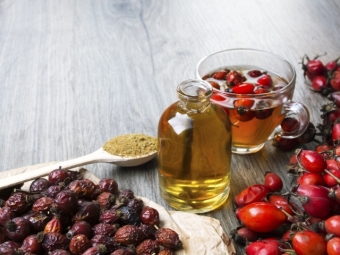
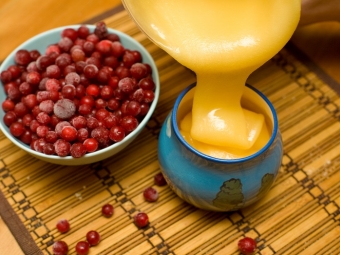
How does it affect pressure?
The fruits of the wild rose, being a natural pantry of health, have a beneficial effect on blood pressure and the entire human circulatory system. But you need to know how to properly use the power of rose hips so as not to harm the body. So, a rosehip decoction with the addition of alcohol increases the performance in hypotension, and an infusion brewed in water lowers it at high pressure.
To achieve sustainable results, an infusion or tincture is used course, within 2-3 weeks, taking no more than a quarter cup of medicine a day before meals, because it also helps to increase appetite. After a short break, the course of treatment can be repeated.
The most important thing is not to confuse the methods of preparing the medicine, taking into account whether your blood pressure is high or low, in order to avoid unpleasant consequences.

Recipes:
- In equal proportions, take rose hips, hawthorn, cranberries and chokeberries, pour the resulting composition with boiling water at the rate of 250 ml per three tablespoons of a mixture of berries. Insist in a warm place for at least an hour, filter and take half a glass an hour before meals;
- Vitamin tea to strengthen blood vessels - you need 7 wild rose berries, 5 lemon balm or mint leaves, 2 dried prunes, lemon zest. Grind all the ingredients and pour boiling water in a teapot. After 30 minutes we get a fragrant and healthy drink.
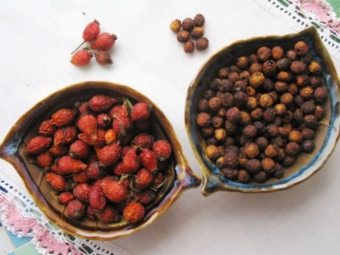
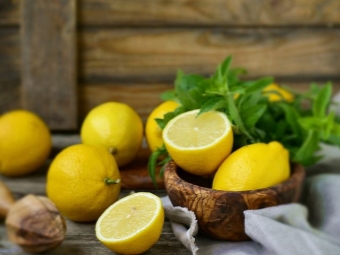
How to boil?
It is important to properly dry the collected rose hips in the oven - it is necessary to monitor the process so as not to overdry them to a blackened state. Decoctions are prepared from dried berries, which must be washed well with water and kneaded before use, and each berry can also be pierced several times with a needle.
You should not be afraid that needles or seeds can spill out of the fruit - the finished drink is always filtered through a fine sieve before drinking.
The fruits of wild roses are poured with boiling water and allowed to brew in the warmth. This can be done in a thermos, as it maintains a fairly high temperature of boiling water for a long time. It is not recommended to boil berries on an open fire, because in this process all vitamins and useful components will be destroyed.
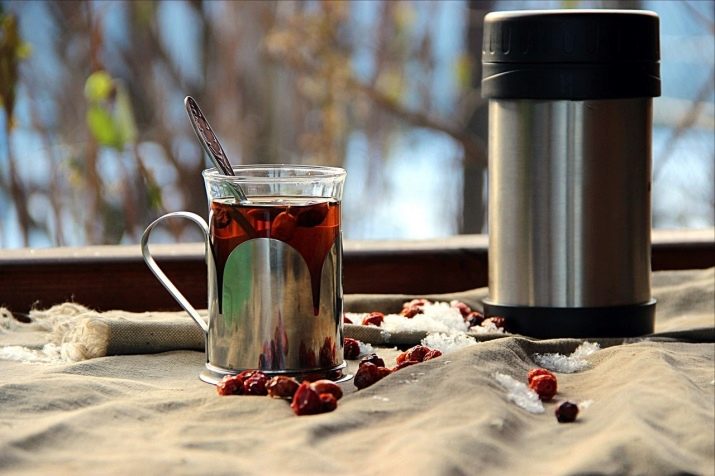
If you decide to prepare a decoction of wild rose fruits, you need to pay attention to the following points:
- for every 250 ml of water you need to take no more than 10 medium-sized berries;
- the temperature of the water should not reach a boil, it is best if it is brought to the mark of 80 degrees, that is, when the first bubbles appear, we stop heating the water;
- the holding time of the decoction should be at least 8 hours, it is best to pour the berries in the evening, and in the morning you will already have a ready-made decoction that can be used throughout the day;
- a thermos with a metal flask is not suitable for making a decoction, since the acids contained in the berries will begin to react with the metal, causing oxidation processes.
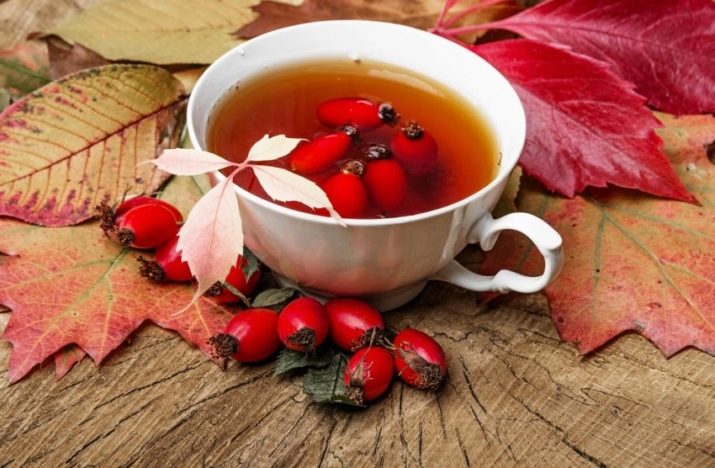
In a wild rose, all parts of the plant are healing, but you need to be able to cook them correctly. The preparation procedure is simple, if you know some features:
- Decoction of rhizomes - clean, dry and powdered rosehip roots are taken in the amount of one tablespoon with a slide and pour half a liter of boiling water. Close the container tightly with a lid, insisting the composition for 20 minutes, after which it is filtered through a fine-mesh sieve. The resulting remedy is effective in urolithiasis of the kidneys and urinary system, they are treated with chronic cystitis, the remedy is indicated for use in heart disease and vascular circulatory disorders;
- A decoction of young twigs - fresh young shoots and branches of wild rose are collected, dried and crushed. For one tablespoon of raw materials, 500 milliliters of boiling water goes, the twigs need to be boiled for 5-10 minutes over low heat, then let the broth brew for at least an hour. The broth is filtered and taken half a glass a day, dividing it into three doses. The tool has proven itself in arthritis, arthrosis, radiculitis, neuralgia, and also has a pronounced diuretic effect;
- A decoction of the petals - two tablespoons of dried wild rose petals are poured with half a liter of boiling water and insisted in a warm place for about 30 minutes, and even better - 12 hours. Take this decoction should be 100 ml three times a day to improve digestion and increase immunity. A decoction relieves nausea during toxicosis in pregnant women.
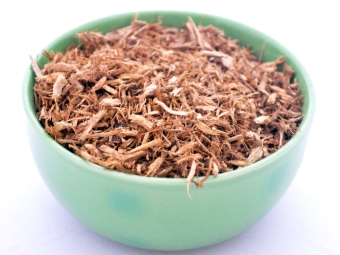
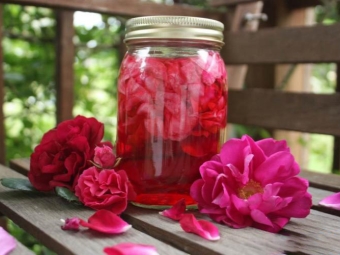
You can prepare rosehip medicines by combining it with other components to enhance its beneficial properties:
- Rosehip and hawthorn. To prepare the drink, you need to take two tablespoons of wild rose fruits and one tablespoon of hawthorn fruits. Berries pour three cups of boiling water. It is best to do this at night in a thermos. The ingredients are insisted all night, and in the morning the strained infusion is taken half a cup twice a day.The drink helps well with pain in the heart, high blood pressure, well calms the nervous system before going to bed;
- Wild rose fruits and pine needles. The composition is used for high blood pressure. Take wild rose berries, onion peel and pine needles in a ratio of 2: 2: 5. Put all the ingredients in an enameled container and pour cold water in a volume of one liter. Bring to a boil over low heat and simmer for 15 minutes. Then remove from heat and let the broth brew under the lid for two hours. Filter the drink and take a quarter cup before meals three times a day. The course of treatment is at least 4 months. But you need to drink a decoction according to the scheme - take two days, refrain from taking it for two days;
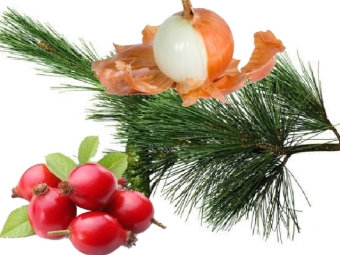
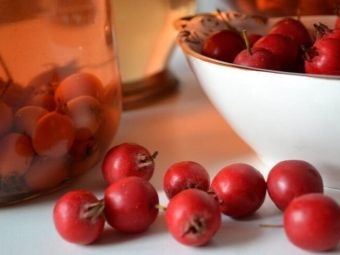
- Rosehip and oats used to remove intoxication products from the liver after illness or poisoning. To prepare a decoction, take two tablespoons of oats and four tablespoons of rose hips. All this is ground in a coffee grinder and poured with a liter of boiling water, boiled in a water bath for 20 minutes, after which the composition is allowed to brew under the lid until it cools down. Strained broth is taken in a glass three times a day in the morning and evening before meals. The course of admission is designed for two weeks;
- Rosehip knot take both warm and cold, from which its properties to increase the immune forces of the body do not change. Prepare it as follows: rinse 15-20 berries and pour water for an hour, then put the swollen fruits in a saucepan and pour half a liter of water. Bring to a boil and immediately remove from heat. We insist the uzvar for a day, after which we filter, heat it up a little and add honey to make a fragrant vitamin drink.
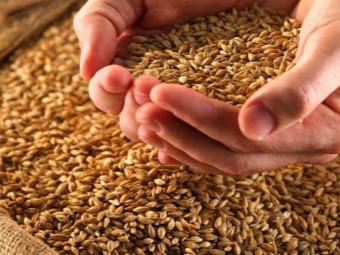
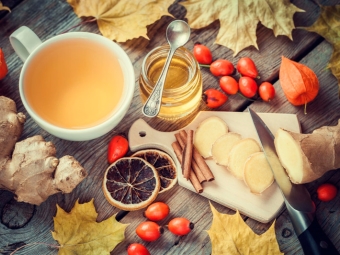
Modern medicine today combines folk and traditional methods of treatment, so rosehip decoctions and infusions are often combined with the main course of therapy.
For information on how to brew rose hips, see the following video.
How to use?
In order for the use of wild rose fruits to be with tangible benefits for the body, you need to know how to take medicines prepared with their use:
- decoctions and infusions of wild rose take a course of two to four weeks;
- between courses, it is advisable to take a break for a month;
- preparations based on wild roses can be drunk three times a day, sometimes only in the morning and evening;
- taking medicines is best done before meals, since rose hips can whet the appetite, for this reason it is undesirable to drink it after eating;
- on an empty stomach, it is not recommended to drink any drugs, because due to the high content of acids, irritation of the mucous membrane of the walls of the stomach can be obtained;
- during pregnancy, you need to drink decoctions with caution, since 10-15 berries contain the daily intake of vitamin C, so it is important not to overdo it with the dosage and not increase the load on the liver.
As you can see, the methods of using this plant are not so complicated. Most importantly, make sure that decoctions and infusions are prepared using high-quality and fresh raw materials, the shelf life of which after collection is no more than two years.

How long can the decoction be stored?
A fresh decoction of any part of a wild rose plant is recommended to be stored for no more than a day in a cool place, protected from direct sunlight. You can’t use spoiled or old drinks, you won’t find any benefit in them, and they can do harm to digestion.In addition, drinks must be protected from access to oxygen, as it leads to oxidative processes of all components.
For the same reason, oxidation it is impossible to prepare and store rosehip decoctions in metal containers - use glass or earthenware containers. If you have prepared syrup or jam from the fruits or petals of a wild rose, store the finished product in a dark and cool place with a lid tightly attached to the dish.
It is desirable to use it within a year, and even better - for six months. Only if properly stored, rosehip products will be able to give you all the beneficial properties of this plant and improve your body.
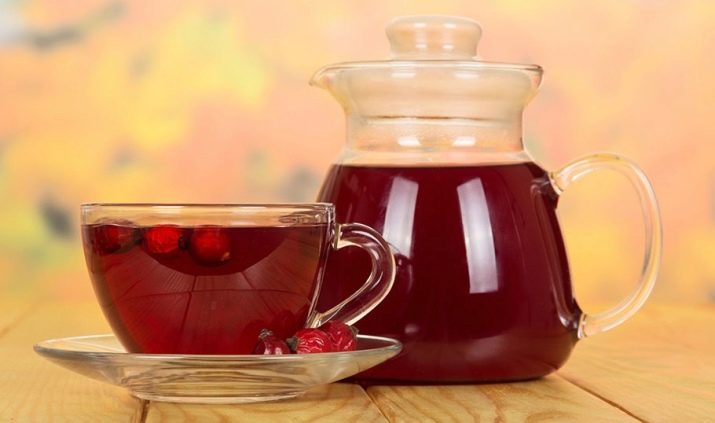


















I read that a rosehip decoction has a good effect on fertility, is it true or not? And how to brew it?
It increases overall immunity, but the effect on conception is an exaggeration!)
I have been brewing rosehips in a thermos since the evening, and in the morning the infusion is ready. I drink rosehip tincture instead of compote, add a little sugar - and that's it. Be healthy!
You can add honey instead of sugar, it will be more useful.